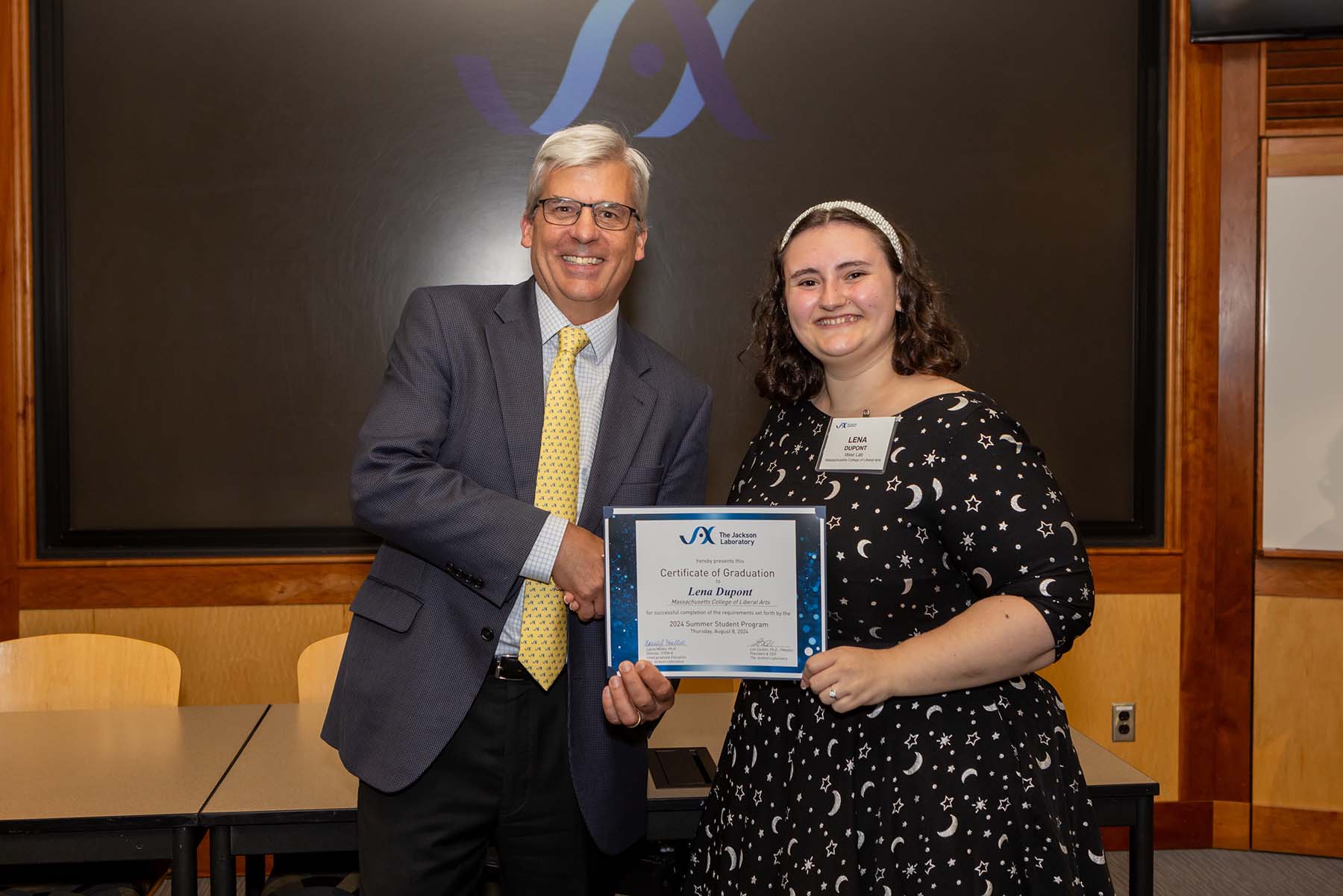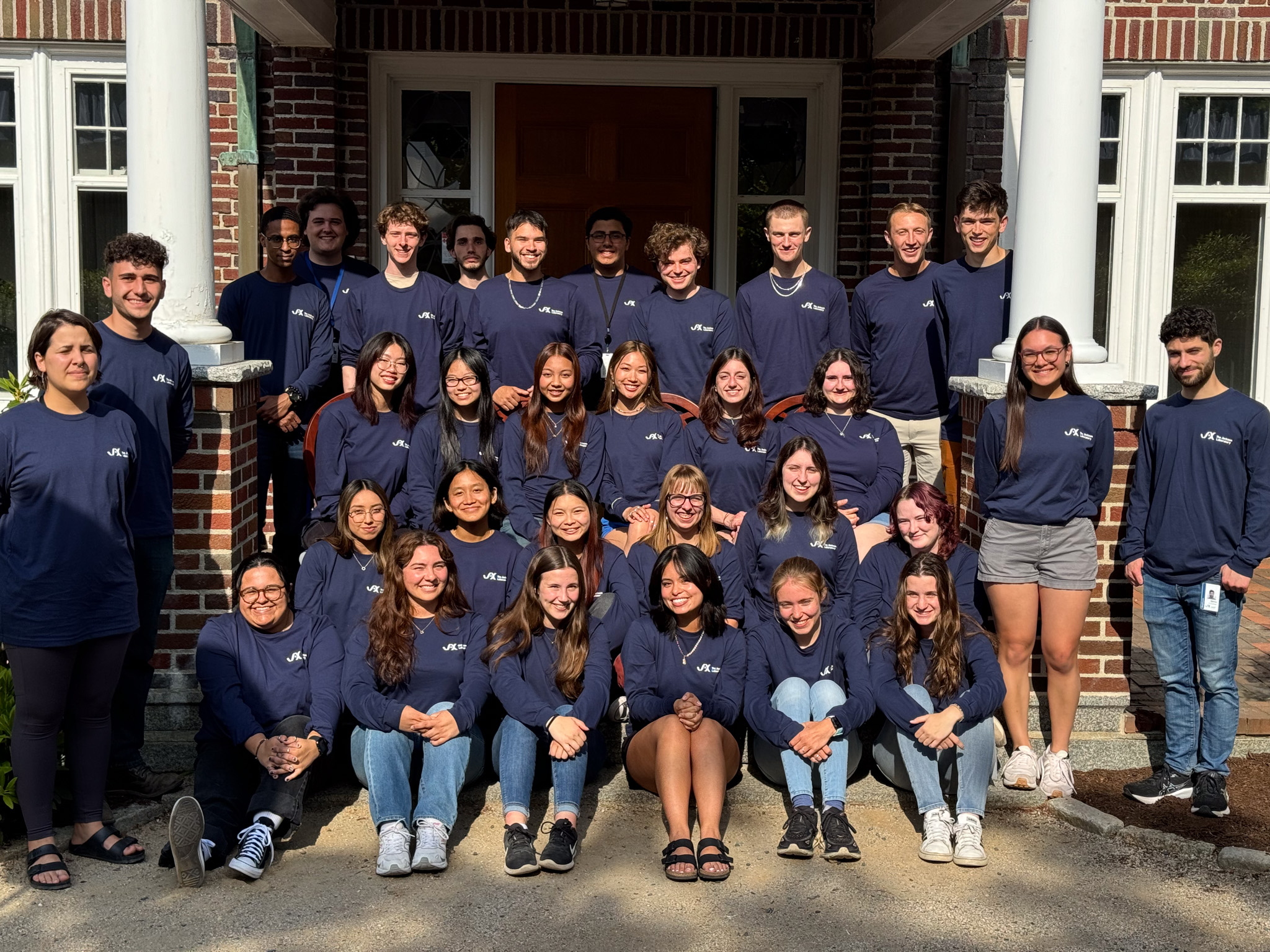MCLA Senior Reflects on Jackson Laboratory Summer Student Research Program in Maine
Each year The Jackson Laboratory in Connecticut and Maine accepts roughly 40 students
for an immersive 10-week program to research genetics and genomics. One MCLA senior
was accepted into the competitive program this summer and presented her research at
the end during a symposium.
Lena DuPont ‘25 first heard about the Summer Student Program (SSP) while in middle
school but didn’t apply until this year. DuPont was accepted, spent the summer at
the Bar Harbor, ME location, and was awarded a $6,500 stipend including room, board,
and travel. DuPont has a biology major and a chemistry minor. Out of 500 applicants,
only 27 students were accepted.

“It made me really proud to hear those actual numbers and it took me back that I was
accepted out of the other qualified students,” she said. “A lot of us represented
our school pride while we were there.”
Program participants get paired with an experienced scientific mentor, develop an
independent project, implement a plan, analyze the data and report the results with
the expectation of presenting their findings to researchers, other students and parents
to culminate the experience.
DuPont’s research focused on defining the role of a specific protein, mitochondrial
topoisomerase (TOP1MT), in mtDNA stability, release, and innate immunity. This protein
helps regulate the coiling of mitochondrial DNA. When this protein is absent or disrupted,
it can lead to harmful effects, especially when cells are exposed to certain cancer
drugs like doxorubicin. The research focused on how the loss of this protein might
trigger inflammation, potentially leading to heart damage or contributing to autoimmune
diseases. DuPont also worked with a mouse model to test whether it effectively mimicked
these cellular processes, building on previous experiments done in cell cultures.
This experience allowed DuPont to think more broadly about which careers she could
pursue with a degree in biology. Outside of the research project, the program offered
professional development days including networking events with industry professionals
from Jackson Laboratory.
“I feel like I also gained more insight into what it is to be a biologist and the
different terms that fall under that umbrella,” she said “This program helped me solidify
the fact that I want to continue my education after graduating and I’ve already started
looking into Ph.D programs around cellular and molecular biology.”
DuPont said that her boyfriend and brother have participated in similar research programs,
which gave her insight on what to expect, however, her time in Maine was special and
she valued the micro-environment that the campus offers and befriending other students.
Living in close quarters and working together daily built camaraderie she didn’t anticipate.
“The symposium helped us come together and celebrate all the hard work that everybody
put in over the summer and I really liked that,” she said.

